ChemistryProgram
School of Engineering

Program Overview
 AWARD
AWARD
B.Eng (School of Engineering)
 DURATION
DURATION
4Y
 SCHOOL(S)
SCHOOL(S)
School of Engineering
 Focus of Study
Focus of Study
Applied Chemistry, Biotechnology
Chemistry Program
School of Engineering
Program Introduction
The Chemistry Program at Nagoya University’s G30 International Program offers world-class education through the School of Science and the School of Engineering. As one of Japan’s premier research institutions in chemistry, Nagoya University has produced many of the country’s leading chemists. Notably, Emeritus Professor Ryoji Noyori received the Nobel Prize in Chemistry for his pioneering work in organic reaction chemistry—the first recipient in the field in the 21st century. In addition, alumnus Professor Osamu Shimomura was awarded the Nobel Prize for his discovery of green fluorescent protein. The Chemistry Program curriculum is carefully designed to cultivate both theoretical understanding and experimental expertise through interactive lectures, hands-on workshops, seminars, and laboratory work. The program provides access to cutting-edge research facilities and a dynamic learning environment. Below, we highlight the distinctive features and opportunities of the Chemistry Program at the School of Engineering
Course Highlights
The Chemistry Program at the School of Engineering is an interdisciplinary program that bridges materials science and the natural sciences—such as chemistry, biology, microbiology, and biochemistry—along with physics and mathematics. The curriculum emphasizes a solid understanding of fundamental chemistry and its scientific applications, with a particular focus on materials and biotechnology. Our program covers the core areas of introductory chemistry, including physical, organic, inorganic, analytical chemistry, and biochemistry. Building on this foundation, you will delve into a wide range of advanced topics such as bio-organic, bio-inorganic, organometallic, solid-state, quantum, materials, and polymer chemistry. From your third year onward, the program shifts toward advanced applications and research development through interactive seminars, workshops, and laboratory work. These hands-on experiences will equip you with the practical skills needed for a successful career in the dynamic and rapidly evolving field of chemistry. We encourage our students to push boundaries—challenging traditional concepts in materials chemistry, biochemistry, and bioengineering—and to explore innovative applications in new and emerging fields beyond conventional chemistry. If you’re excited by the idea of combining creativity with scientific discovery, this could be the program for you!
Why Nagoya University’s G30 Chemistry Program – School of Engineering?
- Curriculum designed to give students a profound understanding of chemistry, biochemistry, and materials chemistry.
- Study advanced applications and develop research skills through interactive seminars, workshops, and laboratory work.
Curriculum
1styear
Japanese Language, Liberal Arts & Basic Courses
Take foundational courses to ease into life at Nagoya University:
- Fundamentals of Physics I/II/III
- Fundamentals of Biology I/II
- Fundamentals of Chemistry I/II + Laboratory
- Fundamental Courses in Natural Sciences
2ndyear
Basic Specialized Courses
Start building your chemistry foundation by taking basic courses:
- Analytical Chemistry
- Inorganic Chemistry I
- Physical Chemistry I/II
- Cell Biology I
- Organic Chemistry I/II
- Quantum Chemistry I
3rdyear
Specialized Courses & Laboratories
Start deciding on your specialization through specialized elective courses:
- Inorganic Chemistry II
- Chemistry of Inorganic Materials I
- Quantum Chemistry II
- Specialized Elective Courses
- Chemistry and Biotechnology Laboratory I/II
4thyear
Research and Thesis
Complete your research on your chosen specialization/field:
- Chemistry and Biotechnology Laboratory III/IV
- Graduation Research A/B
- Advanced Chemistry Tutorial A/B
* Note: This curriculum outline serves to show a snapshot of what the program has to offer and does not list all graduation requirements. Please refer to the program’s Graduation Requirements found on the admissions website.
Related Links
How to Apply
The Chemistry Program at the School of Engineering offers two application rounds: the first in November–December and the second in January. Please click on the “Apply Here” icon above to view the full application instructions.
Below, you will find a selection of recommended standardized test scores for students interested in applying to the Chemistry Program at the School of Engineering.
Detailed eligibility criteria and application requirements are provided in the Application Guidelines available on the Apply Here page.
Recommended Scores
- SAT total score approx.1400 and above
- SAT Math socre approx.700 and above
- IB 38/42 and above: MathHL/ChemHL/BioHL 6 or 7
- A-Level: AAA and above
Student Voice
4th Year India
What sparked your interest in the G30 Chemistry Engineering Program?
I first considered applying to a university in Japan when I had the opportunity to visit Japan during my time in high school through the Sakura Science Exchange Program for a week. In that week, I was fortunate enough to attend a speech given by Ryōji Noyori, Emeritus Professor of Chemistry and Nobel Laureate at Nagoya University. I applied to Nagoya University to gain the necessary skills to also contribute to such cutting-edge research in the future, and as such, joined the Ohtsuki research laboratory as soon as I was able to.

What courses did you take in high school?
In high school, I took:
- Physics
- Chemistry
- Mathematics
- English


Program Video
Career Path
Your Future Career
The research environment, rich with opportunities linked to industry and top-notch facilities, empowers students to become specialists in chemistry engineering taking leading roles in industry, government, and academia.Most of our graduates have gone on to the graduate program at Nagoya University. Some also have gone on to graduate schools at prestigious universities around the world. Previous graduates have gone into careers in the chemical, pharmaceutical and food manufacturing industry, public institutions or taken positions in academia in or outside Japan.
Examples of Career Paths
Academia
- Nagoya University
- University of Tokyo
- Massachusetts Institute of Techonology
- University of Wisconsin-Madison
- University of Toronto
- University of Oxford
Employment
- Deutsche Bank
- IDEMITSU
- P&G


